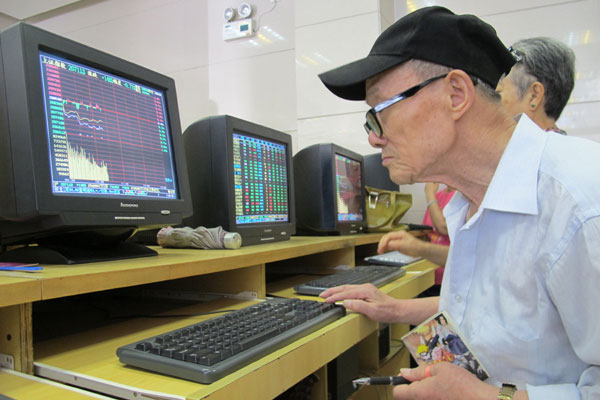Through train for equities to lift capital market sentiment
Since the China Securities Regulatory Commission announced the rules for the Shanghai-Hong Kong Stock Connect program, institutions and investors have been gearing up for the new cross-border equity program, according to index provider MSCI Inc Managing Director Chia Chin-Ping.
The pilot plan, known informally as the "through train", may create a fairer, more flexible trading environment that will boost interest from global investors and lead to A shares being included in the most important global stock index, said Chia.
"Some investors view this new program as an access channel that has the potential to mitigate some of the market accessibility issues of the current systems," Chia said in Shanghai.
The pilot program announced in April, which is expected to start in October, allows investors to trade and settle eligible shares in each other's market via local exchanges and clearing houses. "In terms of market access, this program requires no quota application, and there is no need to wait for approval from related authorities. It will be handled on a first-come-first-served basis. It is a breakthrough from the current system," Chia said.
Overseas investors now mainly trade Chinese mainland shares through the qualified foreign institutional investors and renminbi qualified foreign institutional investors programs. The CSRC grants licenses and market access to qualified applicants for these programs, while the State Administration of Foreign Exchange approves quotas for individual funds.
"One of the main issues under this system is that not all investors are offered fair market access based on their asset size, location of operations, investor profile, investment type or the chosen access scheme," Chia said.
It's hard for some smaller investors to qualify for the QFII program. And for large international passive asset managers, the $1 billion individual quota cap under the QFII program makes it impossible to accommodate the necessary investment allocation to track the MSCI Emerging Markets Index.
"The Hong Kong-Shanghai stock program simplifies the process. No matter whether you're an individual or institutional investor, a big fund or a small fund, the threshold for participation is even," Chia said.
However, he noted that the through train is not yet a "fully open" channel, as investors are still under daily and overall quota controls. The quotas are in place to space out the initial launch smoothly to avoid undue market volatility in the short term. Quotas are only one of the initial restrictions. The others are investor eligibility for mainland investors and eligible stocks.
These requirements are also in place to ensure prudent risk management at the time of launch. Assuming a successful launch and smooth running of the program, and subject to regulatory approvals, these restrictions are expected to be phased out, said Charles Li, CEO of Hong Kong Exchanges and Clearing Ltd, which operates the stock exchange in Hong Kong.
"The daily quota control can be challenging to some investors, especially passive asset management. Because passive funds tend to operate the investment based on index changes and just before the market closes, and they cannot do that if the quota is used up by other investors," Chia said.
What's more, the lack of clarity on capital gains tax, which is the major concern for offshore investors in the QFII and RQFII programs, is another issue for the pilot program.
The need to make provisions for capital gains tax payments and the resulting effects on tracking error and profit repatriation are frequently highlighted as concerns by investors. While some market participants have chosen to make no tax provision, some perceive the lack of tax clarity a major operational risk, directly resulting in their decision to give up investment on the China market, Chia said.
Generally speaking, most investors consider the Hong Kong-Shanghai pilot program to be more flexible and fair than the QFII/RQFII programs, despite more technical issues to be tackled by both sides, he said.
"It is crucial for investors to have a good experience at the initial stage of the program. Too many constraints will reduce their interest, and authorities on both sides need to think more about that," Chia said.
MSCI announced earlier this month it wouldn't include A shares in its Emerging Markets Index, based on feedback from investors who said the QFII and RQFII systems are restrictive and offer uneven levels of market access.
Chia said A shares are still on the review list for 2015, and people will be watching closely to see if programs like the through train substantially improve conditions.
Contact the writer at xieyu@chinadaily.com.cn
|
An investor checks equity prices at a securities firm in Haikou, capital of Hainan province. Most investors consider the Shanghai-Hong Kong Stock Connect program to be more flexible and fair than the QFII/RQFII programs. Shi Yan / For China Daily |

























